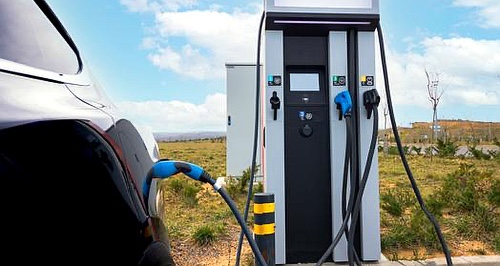Make / Model Search
News - General News - Electric VehiclesEuro ICE ban confirmed for 2035RUNNING ON EMPTY: New diesel and petrol cars will not be registered for use on EU roads from 2035, speeding up the switch to fully electric vehicles.
New combustion engine ban to reshape transportation across the European Union31 Oct 2022 By MATT BROGAN THE European Union has made official its decision to ban new internal combustion engine cars from 2035.
Expected to reshape road transportation globally, the ban marks a significant step on the path toward zero tailpipe emissions in the region.
The decision, which was agreed upon by the EU’s three key institutions – its executive arm, the parliament, and its member states – stated that vehicle manufacturers must reach a zero emissions target by 2035.
It means new diesel- and petrol-powered cars will not be eligible for registration and use on the region’s roads after 2035, effectively speeding up the switch to fully electric vehicles.
Additionally, the deal included a 55 per cent cut in CO2 emissions for new cars sold from 2030 when measured against 2021 levels, a significant toughening of the existing 37.5 per cent target.
“European car-makers are already proving they are ready to step up to the plate, with increasing and increasingly affordable electric cars coming to the market,” said European Commission executive vice president Frans Timmermans.
“The speed at which this change has happened over the past few years is remarkable.”
The agreement has global ramifications. As the world’s largest trade bloc, the EU has a reputation for setting standards globally and is home to some of the world’s biggest car manufacturing names.
Already, Bentley, Ford, Jaguar, Stellantis and Volkswagen have committed to the cessation of sales of internal combustion powered cars by 2035 or earlier.
But there are exceptions to the rule. Niche manufacturers such as Lamborghini, which produce only a small number of vehicles per annum, are afforded a 12-month reprieve from the emissions targets.
Further, a non-binding element favoured by member states that calls on the commission to propose registering vehicles running exclusively on carbon-neutral fuels after 2035 was included in the final deal.
“We are now keen to see the framework conditions which are essential to meet this target reflected in EU policies,” said BMW CEO and president of the ACEA (Europe’s counterpart to the FCAI) Oliver Zipse.
“These include an abundance of renewable energy, a seamless private and public charging infrastructure network, and access to raw materials.”
According to Automotive News Europe, the regulation will be the first to be approved under the EU’s green plans, known broadly as “Fit for 55”, which aim to cut greenhouse gas emissions by 55 per cent this decade.
Other policies include a major overhaul of the bloc’s carbon market, as well as measures to spur renewables and energy efficiency.
But there are those who have criticised the deal, saying it could lead to a build-up over time of older vehicles on EU roads rather than new generations of potentially more efficient ones.
“With today’s agreement, a 'Havana effect' is becoming more realistic,” said European People’s Party lawmaker and negotiator Jens Gieseke.
“After 2035, our streets might become full of vintage cars, because new cars are not available or not affordable. Today's deal slammed shut the door to new technological developments and put all the eggs in one basket. This is a mistake.”
However, green campaigners, including Brussels-based environmental lobby group Transport & Environment (T&E) group, have welcomed the ban.
Senior director for vehicles and e-mobility at T&E, Julia Poliscanova, said: “The days of the carbon spewing, pollution belching combustion engine are finally numbered.
“It's 125 years since Rudolf Diesel revolutionised engine efficiency, but lawmakers have decided the next chapter will be written by the cleaner, better electric vehicle. For the planet and human health, that can’t come fast enough.”  Read more19th of October 2022  Euro 7 rules to take hold this monthNew EU pollution rules focus on carbon monoxide, hydrocarbons and fine particulates28th of September 2022  Govt reveals EV strategy discussion paperLabor tables five-point plan with National Electric Vehicle Strategy Consultation Paper |
Click to shareGeneral News articlesResearch General News Motor industry news |











Facebook Twitter Instagram